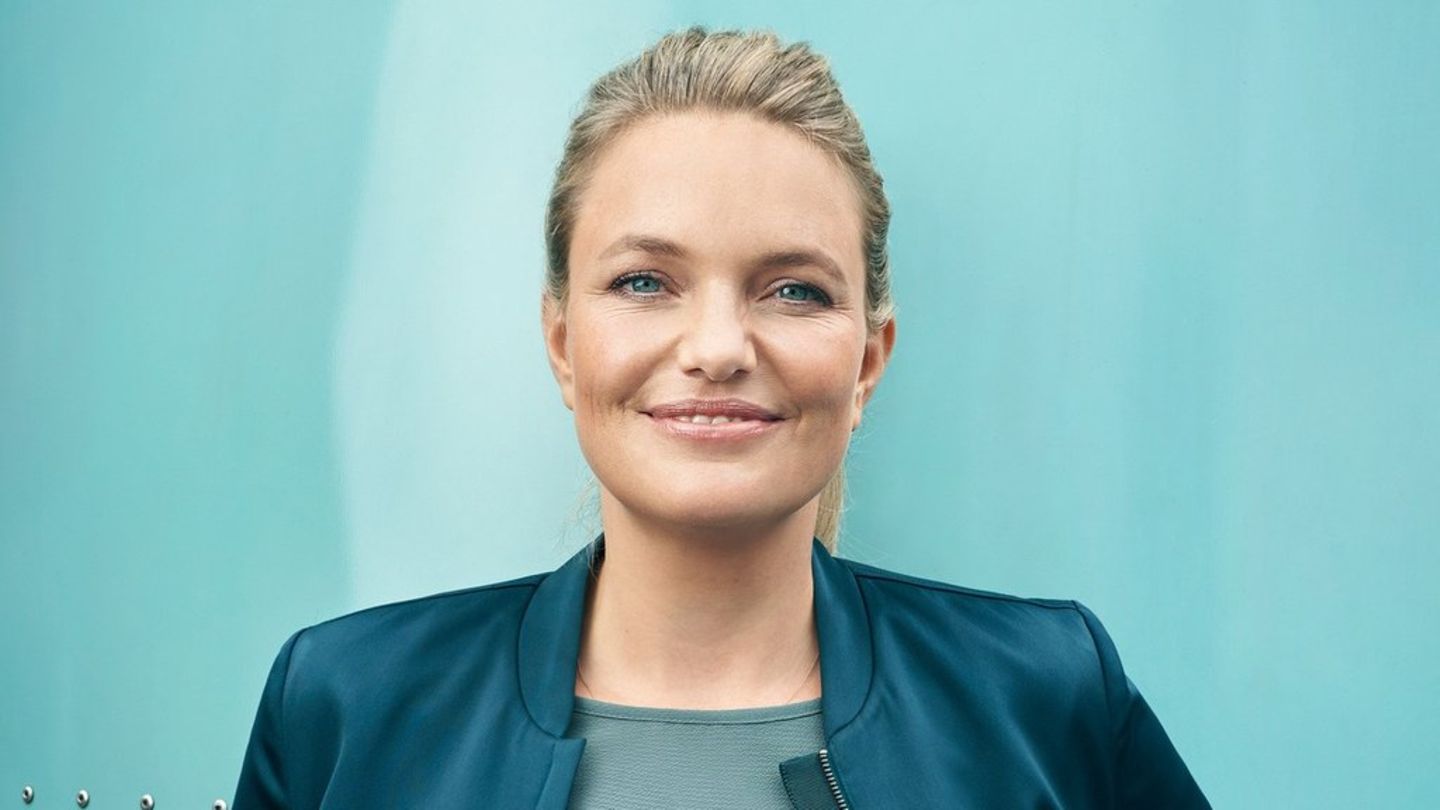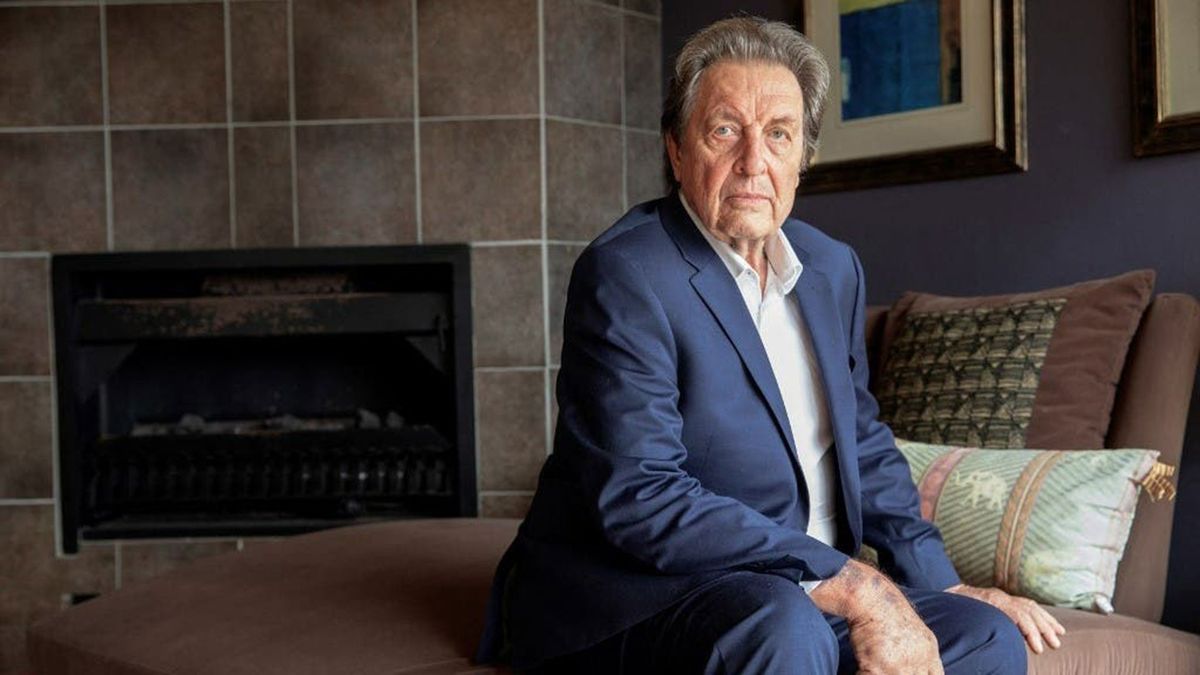Ten years “We can do it”
TV documentary asks: Did we make it?
Copy the current link
Add to the memorial list
Ten years ago, Angela Merkel said the famous sentence “We can do it”. In an interview with her TV documentary, Sarah Tacke now takes stock.
In summer 2015, thousands of refugees came to Germany and were welcomed with open arms in many places. From the initial euphoria, however, a tear test for the state and society soon developed. On August 31, 2015, the then Chancellor Angela Merkel (71) shaped the historical sentence: “We can do it.” Ten years later, ZDF journalist Sarah Tacke draws flight and crisis in the “AM PULS” documentary: 10 years ‘We create the’ “balance. For this, she evaluated statistics and traveled across the country for months to meet refugees, interview helpers and research in conflict -rich places. In conversation with Spot on News, Tacke tells what she surprised, where integration has succeeded – and why she believes that honest debates are more important than ever today. The film will be shown on ZDF on August 14th at 10:15 p.m. and is available in the media library.
Why did you want to make this film?
Sarah Tacke: The question “Did we make it?” Stand for me at the very beginning. Of course everyone has a gut feeling, but I wanted to know exactly. So it was my wish to make this film. I wanted to understand how it actually went in the past ten years how to keep the borders open through the decision to keep the borders open, and in the end I wanted to be able to give a well -founded answer.
How did you approach the answer?
Tacke: We took three steps. First we focused on numbers, data and facts and looked at official statistics – for example: How many people have come since 2015? How is the gender distribution? Where do you live? Who works, who receives citizens’ money, who is recorded in crime statistics? … it was not so easy to find numbers and understand them.
In addition to this objective data, we have also collected experience reports. I started a call about the ZDF and social media: “Please do not write me your opinion, but what you have experienced yourself – positive and negative.” I then received over a thousand letters. This is not a representative survey, but it results in an impressive mood and, above all, experience.
Then came the on-site research: I traveled through the whole country, visited focal points, hit people and spoke to them for a long time. For me, this is the core of the “on the pulse” series: out of the office, right in the middle of the real life.
That sounds like a lot of effort. Is that common within the “Am Pulse” series?
Tacke: The “on the pulse” films actually call for a high level of use – all colleagues say that. We always work in a team: co -authors, producers, editors all go in with such a film with full commitment – a “on the pulse” can only be as good as the team that makes him. And I was personally involved in every research and every shoot. “On the pulse” immerses in a topic very deeply – with a lot of time and presence on site.
And what is your answer: did we do it?
Tacke: It depends on what we wanted to do. If we wanted to help millions of people from a different culture to help, accommodate them, accommodate and take care of them – then we did it. This is an enormous organizational and financial achievement. But if we wanted to fully integrate these people – without great social tensions, without significant burdens from the social and sick systems and without an increase in certain crime areas – then we did not make it.
What were the most surprising encounters for you personally?
Tacke: There are three encounters that have particularly impressed me. Niro Degen from Franconia: He came from Syria in 2015, not only speaks German, but even perfect Franconian, made his teaching exam, accepted the name of his wife and is completely integrated – and yet he experienced racism, for example when looking for an apartment. Niro impressed me sustainably and showed me how intensely you can arrive in Germany within only ten years.
Then I got to know Haytham Allafi, a Syrian dental technician who also came in 2015 because his two disabled daughters in Germany can be better cared for. He runs a clothing store in Salzgitter, where there is everything from the headscarf to the short glitter dress. And depending on the scale you also have, he has also arrived: he cares for his family himself, is integrated in the labor market and speaks German very well. Against this background, he really succeeded. But he also freely says that Arab culture is the better one for him and that he feels as comfortable in Salzgitter because he can live there as in Syria. His wife wears a headscarf, they speak Arabic and go to the mosque. Haytham says they would live on their Syrian life in Salzgitter, but health care, security and social system are better, so he is there. In the evening I played cards with him and his Syrian friends. Everyone works, not everyone speaks German as well as he, but it was very nice – they opened their door. It is a parallel society, but of people who have integrated into the labor market and lead a Syrian life in Salzgitter. What Haytham showed me is that the question, when is someone integrated, what do we expect from immigrants not always to be answered clearly. Because he has achieved a lot for himself and his family in Germany since 2015. And yet it is probably not what the majority of the spectators who wrote to me, in the sentence “We can do it”.
And then I was at the train station in Regensburg because this place is considered an endangered object. It can be checked without preventive effects because crime has increased by 165 percent, especially by foreign suspects and perpetrators. Among other things, I spoke to a young Iraqi who came in 2015, similar to Niro. The man in Regensburg was in prison for four and a half years – the list of crimes is long – and still had drugs with me. He had the same possibilities as Niro and Haytham, but if you like, he didn’t do it. These three examples show how crucial personal will, history and environment are.
Did you come across resistance or reservations when researching or turning on this polarizing topic?
Tacke: On the contrary – many thousand people wrote to me and invited me to tell their story. And Hussam Al Zaher worked in our team of authors for this film. He himself immigrated from Syria in 2015 and today works as a journalist in Hamburg. Hussam not only brought his perspective, his experiences and language, but also open doors for us in Syrian communities, which we cannot open so easily alone. Especially through Hussam’s perspective, experiences and approaches, we were able to dive deeply and multifacetingly into a wide variety of living environments in this film.
Does the “welcome culture” still play a role today?
Tacke: In 2015/2016, an incredible number of people in Germany helped on a voluntary basis – organized language courses, accompanied refugees and furnished apartments. In retrospect, that also impressed me again. Today this willingness is often still there, but often overlaid by disappointment. Many who wrote to me emphasized “I’m not right” in advance when they told about failed attempts to integrate. We have to be able to speak more openly about problems, failure, non -cups – without being put in a political corner immediately. This is not racism, but the opposite. Because it comes from people who have committed themselves and want it to succeed.
What is your most important finding from the film project?
Tacke: Integration is incredibly exhausting – for both sides. For those who arrive, it means learning to learn, cope with bureaucracy, find themselves in a foreign society. For the admission company, it means to involve millions of people from a completely different culture. It only works if both sides are exhausting and clear rules apply. Expectations must be named – and there must also be consequences if they are not met. Welcome alone is not enough, you need structures and a continuation of the engagement.
Spotonnews
Source: Stern
I am an author and journalist who has worked in the entertainment industry for over a decade. I currently work as a news editor at a major news website, and my focus is on covering the latest trends in entertainment. I also write occasional pieces for other outlets, and have authored two books about the entertainment industry.




